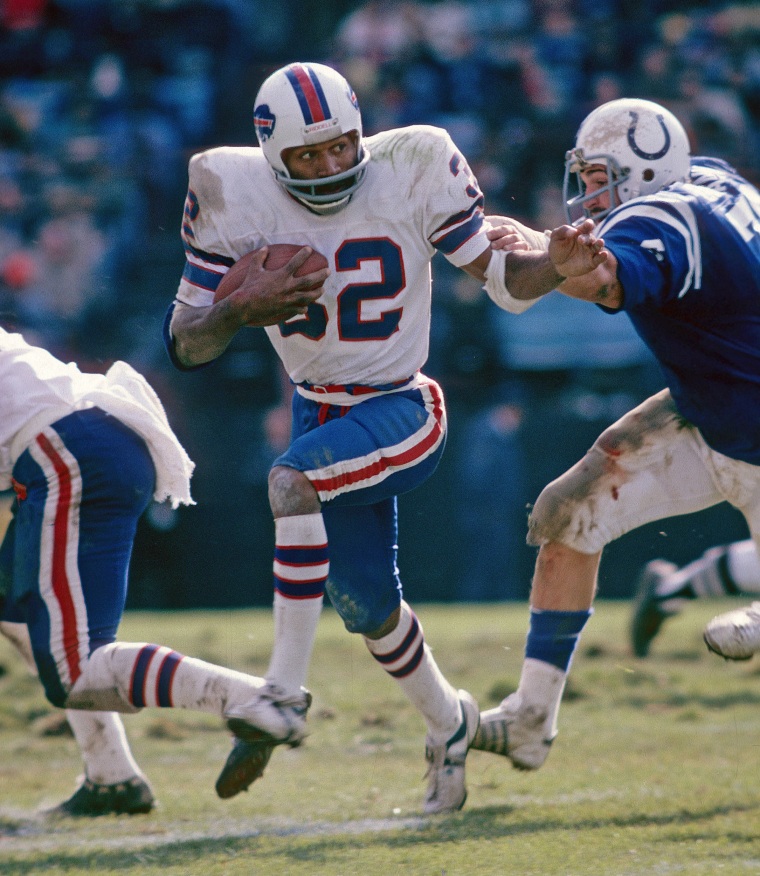“White people were like ‘guilty guilty guilty’ — there were families that broke up, and family members who would not speak to each other over the O.J. Simpson case,” Cannick mentioned. “It was as vicious as the Trump situation. People just felt so strongly one way or the other.”
With the trial’s each element broadcast in wall-to-wall protection on cable news — a natural anomaly at the time — Simpson’s downfall symbolized one thing deeper to many Black folks, in particular with the 1992 L.A. riots nonetheless recent of their minds.
“The African American community has accepted him not as an athlete or a hero, but as someone in the criminal justice system who, like them, would have been railroaded, they would say, if he had not had a Johnnie Cochran there to rescue him,” mentioned Charles Ogletree Jr., a Harvard Law School professor who told PBS’s “Frontline” in 2005 that as Simpson was more a hit, he gave the impression to develop into an increasing number of disjointed from Blackness. (Cochran was a key member of Simpson’s felony protection workforce.)
“O.J. Simpson was raceless,” mentioned Ogletree who founded Harvard’s Charles Hamilton Houston Institute for Race and Justice and died final yr. “He was not a person who spent time in African American communities. He was not a person who was deeply committed to African American values.”
Simpson, who died Wednesday at 76 from most cancers, got here from humble beginnings, raised in housing initiatives in San Francisco. He performed soccer for the City College of San Francisco prior to shifting to the University of Southern California, the place he was a part of the 1967 nationwide championship workforce. The subsequent yr he received the Heisman Trophy and was the No. 1 general pick out for the Buffalo Bills in 1969. He performed in the NFL for 11 seasons and, over the ones years, his attraction and just right appears threw him additional into the highlight.


His upward thrust on the box got here as American tradition was transferring, following the intense height of the civil rights technology.
“He wasn’t just a household name to sports fans, but he became a household name to all of America,” mentioned Shamar Woods, a professor at the University of Arizona, who teaches sports activities journalism. “He was a real celebrity. We talk about influencers in this day and age, but you might say he was one of the original influencers.”
Soon sufficient, he was the face of primary manufacturers like Hertz, Chevrolet and TreeSweet Orange Juice in a gentle circulation of advertisements, ensuring his wealth and reputation. Eventually, that attraction led him to tv and films.
“Add in the fact that he was Black, in the late 1960s — seeing a Black face in these prominent positions,” Woods mentioned. “Certainly the Black community looked up to him and revered him as a figure that people wanted to watch. You just didn’t see that many Black people in these positions.”
To many Black folks, Simpson embodied the American dream. Conversely, alternatively, it was turning into transparent that O.J. was no longer precisely holding his roots in thoughts right through his ascent.
It emerged that he would tell close friends, “I’m not Black, I’m O.J.” — an obvious popularity that he understood how his reputation gave the impression to go beyond his race in the eyes of white enthusiasts.
“Especially as a Black athlete at that time, it’s hard not to get caught up in this lifestyle and forget where he came from and forget his roots, and forget about the people who truly cared for him as a person, and not about his ability to carry a football or act in a movie,” Woods mentioned. “Different people viewed him differently.”
By the time Simpson was pursued through LAPD in a slow-speed chase on a Southern California highway in 1994, Los Angeles was already on a low boil of deep-seated racial tensions and Black animosity towards police.


